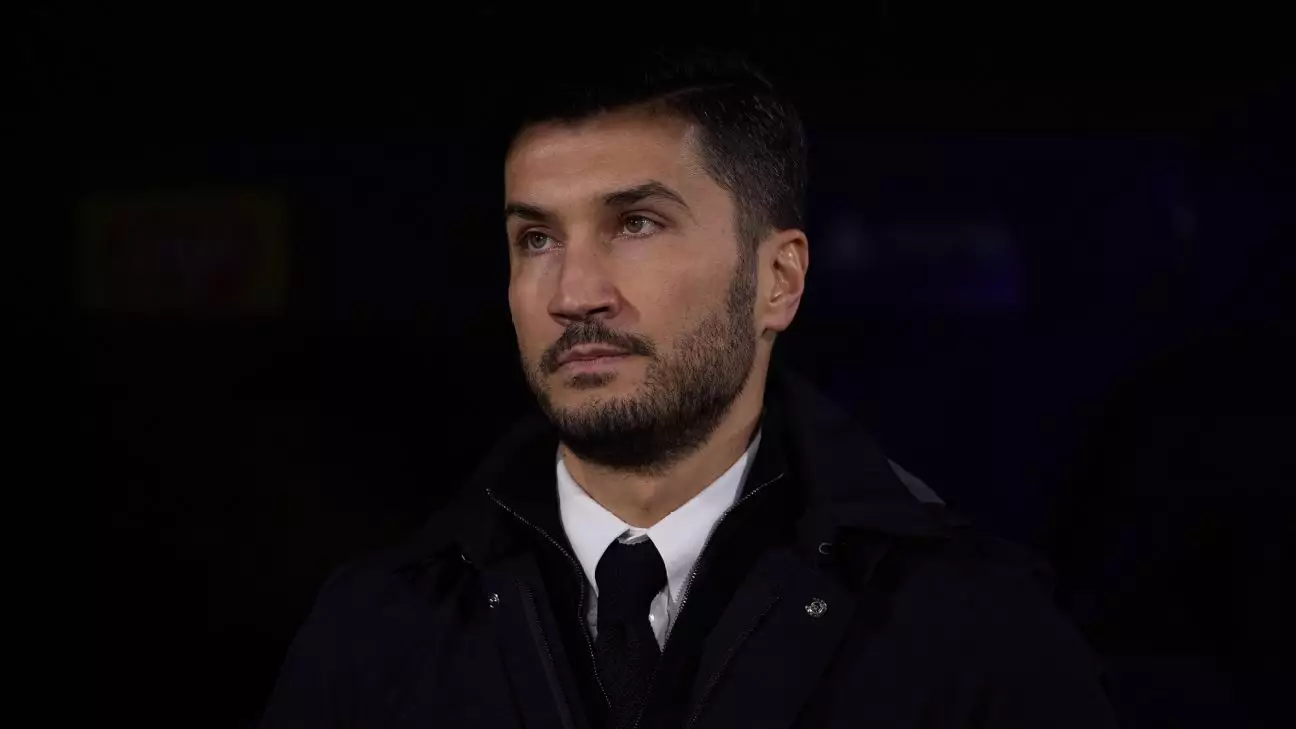The departure of Nuri Şahin from his managerial role at Borussia Dortmund marks yet another chapter in the club’s ongoing struggle to find stability and success on the pitch. Appointed only a year ago, Şahin was brought in with the hope that he could renew the team’s identity and strategy after Edin Terzić’s departure. However, the poor performance of the team during his tenure has raised questions about the ability of the current squad, as well as the structural issues within the club itself.
When Şahin took over as manager last summer, expectations were high. The former Dortmund midfielder was not only expected to harness his intimate knowledge of the club but also to implement a modern philosophy that emphasized possession and attacking play. Unfortunately, these ambitious plans quickly unraveled as the team’s fortunes declined. A string of disappointing results, including a recent 2-1 defeat to Bologna, left Dortmund languishing in 13th place in the UEFA Champions League phase and 10th in the Bundesliga—positions unheard of for a club of Dortmund’s stature.
Lars Ricken, the club’s CEO for sports, made it clear that the waning faith in Şahin’s leadership stemmed from grim statistics, highlighting four consecutive losses and only one victory in their last nine games. This reluctance to continue under the present management suggested a deeper malaise—a problem not solely with Şahin but embedded in the fabric of the club.
One of the most striking observations about Şahin’s tenure was the tactical inconsistency that defined Dortmund’s play. Initially speaking of a desire to transform the team into a possession-driven force, Şahin soon reverted to the reactive style previously employed by Terzić. The attempts to adopt this more progressive approach were quickly abandoned, leading to chaotic performances lacking any coherent strategy.
The failures were evident in matches where the setup appeared disjointed, regardless of whether the team emphasized possession or opted for a more direct approach. A damning 5-1 loss to VfB Stuttgart and a narrow defeat against Union Berlin exemplified this tactical misalignment. This inability to carve out a distinct identity on the pitch underlined the challenges faced by the manager.
Sources within the club have suggested that the issues plaguing Şahin aren’t entirely his fault; the club’s broader structure and player management were also called into question. Since 2018, Dortmund has cycled through a staggering number of managers, with Şahin becoming the fifth in just a short span, which paints a concerning picture of administrative instability.
Critics have asserted that an inexperienced Şahin was tasked with a monumental challenge—that of reviving a club laden with high-profile departures such as Erling Haaland and Jude Bellingham, as well as influential leaders who have either left or suffered injuries. The current roster, while financially impressive, lacks the depth and mental fortitude necessary for sustained success, creating a sense of mediocrity that has permeated the dressing room.
Equally troubling is the performance of the more experienced players, such as Emre Can and Julian Brandt. Their failure to consistently lead by example has made an already weakened squad even more susceptible to poor performance. Additionally, the scouting and recruitment teams are bearing significant responsibility for a lack of impactful signings.
The only notable performances this season have come from a couple of younger players, signaling that the problems run deeper—rooted in player selection and squad management. Just as troubling is the realization that, while the club has avoided a full rebuild, this gradual decline may only worsen without decisive action.
Now, with Şahin’s departure confirmed, Borussia Dortmund faces yet another crossroads. Potential candidates are being considered, with names like Niko Kovač appearing on the shortlist. Kovač’s previous experiences may not guarantee a miraculous turnaround, yet his reputation for instilling physicality in teams could potentially plug some existing gaps in mentality.
Looking forward, it is essential for Dortmund to clarify their vision and strategy if they wish to escape the cycle of despair. This includes not only selecting the right managerial talent but reassessing the players who constitute the squad. A culture shift may be necessary—one that recognizes not only tactical deficiencies but a broader need to encourage resilience and cohesion.
While there remains a realistic chance of qualifying for the Champions League next season, it’s clear that unless fundamental changes take place, Borussia Dortmund’s struggles could continue to haunt them in their pursuit of glory. The latest managerial upheaval serves as a stark reminder: without clear direction and renewed commitment, the road ahead is fraught with peril.

